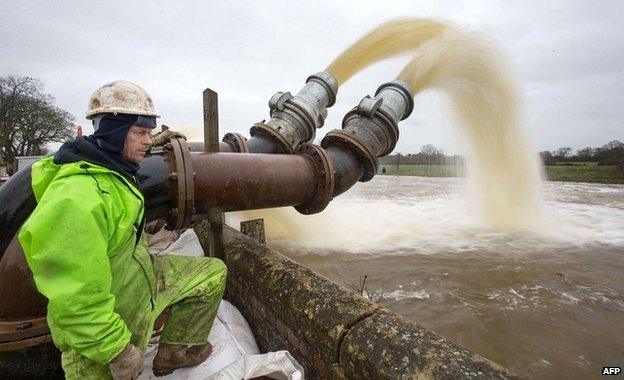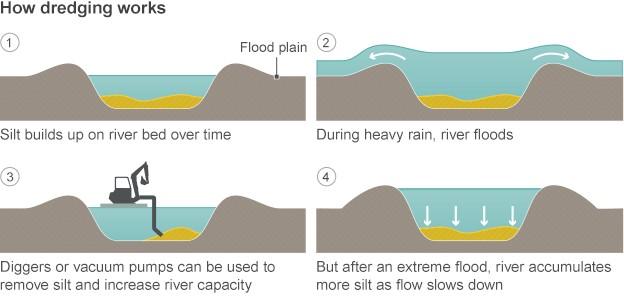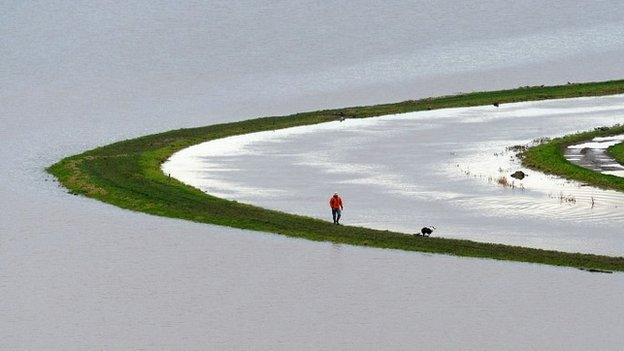Dredging could 'make flooding worse'
- Published

Local people and the NFU have been calling for dredging on the river Parrett
Dredging is a "cruel offer of false hope" to those living in flood-prone communities according to a new report.
The document is the work of an independent body of experts from the Chartered Institution of Water and Environmental Management (CIWEM).
It says that solely relying on dredging could make some areas more vulnerable to rising waters.
The CIWEM says working with nature to slow down the rate that landscapes drain water is a more practical option.
The scale and duration of the recent floods, particularly in the Somerset Levels, have seen many local people and the National Farmers Union calling for increased dredging, external on the Parrett and Tone rivers.
Last October, the Royal Bath and West Society launched a fund to help with the issue, external, saying that these rivers were only transporting around 60% of the water they once carried.
But this new report from CIWEM says that dredging should not be seen as a panacea.
"There are a lot of people calling for their stretches of river to be dredged and there is a perception that it will help reduce the impact on them," Alastair Chisholm from CIWEM told BBC News.

"But it is more effective at managing the smaller, more manageable floods than these extreme events."
Mr Chisholm said that analyses of previous floods in Somerset showed that the practice would not have prevented flooding, though it may have reduced the duration by about a third.
"When you get this sheer volume of water, even a dredged channel will be overwhelmed," he said.
"It can have some significant downsides as well, when you speed that water up through a dredged section you bring it more quickly to a downstream pinch point and the water will back up."
While there is a role for dredging, the report argues that an approach that works with nature rather than against it would be more successful.
Creating upstream holding areas for water, restoring wetlands and encouraging rivers to meander are all ways of slowing down the flow of water that would prevent flash flood peaks from racing downstream.

The CIWEM says speeding up water through a dredged channel can make matters worse
The CIWEM report has been endorsed by a number of environmental organisations, many of which are calling on the government to ensure that these ideas are incorporated into the management of landscapes in future.
"The government must invest in improving the water-holding capacity of the land, making more room for water in urban and rural areas to protect people, homes, businesses and wildlife," said Stephen Trotter, from the Wildlife Trust.
His view was echoed by the RSPB, which argued that the Department for the Environment, Food and Rural Affairs (Defra) could put financial pressure on farmers to adopt techniques that would slow down not speed up the flow of water.
"Land management, from the upper reaches of catchments to the lowlands, has been part of the problem and must be part of the solution to managing uncontrolled flooding," said Martin Harper, the RSPB's conservation director.
"Defra is due to decide the conditions it places on the £12bn of taxpayers' money given to farming through the Common Agriculture Policy in England. This is an opportunity to ensure we create more flood-resilient landscapes and farming practices in the future."